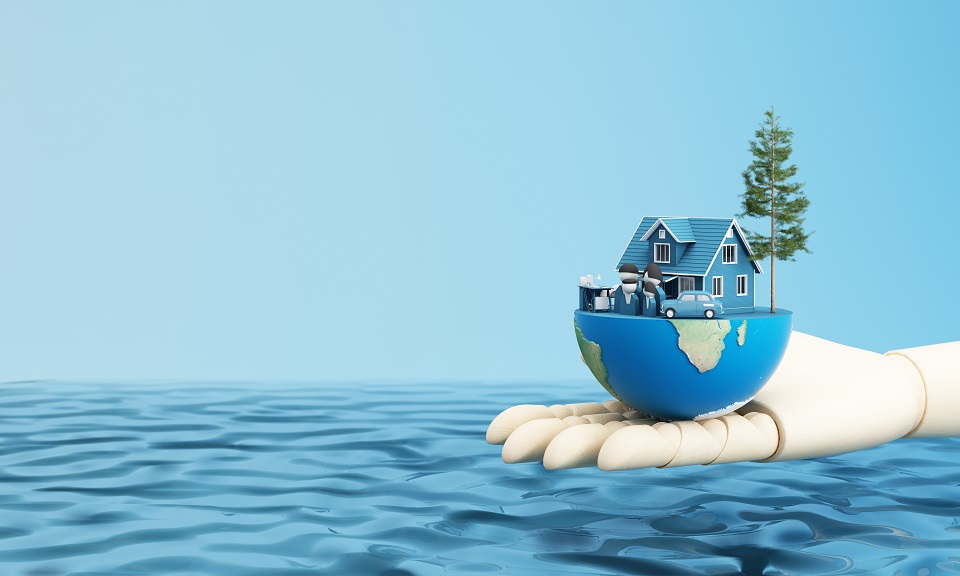The ocean economy, sometimes known as the “blue economy,” is a broad concept that encompasses a wide range of economic sectors and related policies. Whether or not oceanic resource exploitation can be sustained over the long term is the key topic at hand. Fisheries, aquaculture, tourism, transportation, shipbuilding, oil and gas, renewable energy, and other sectors operate in and around the world’s oceans as part of this large economy.
The economic importance of the ocean economy is being acknowledged more and more as our understanding of the waters of the world deepens. The ocean economy is not only a vital source of food and energy, but it is also a powerful force behind trade, innovation, and employment growth.
Unpacking the Ocean Economy: Key Sectors
Fisheries and aquaculture
Some of the most well-established sectors of the ocean economy are fishing and aquaculture, which contribute significantly to global food security by serving as the main source of protein for billions of people worldwide. Nevertheless, these industries confront a number of difficulties, including habitat loss, overfishing, and climate change, which emphasizes the demand for sustainable management techniques.
Maritime Transport and Shipbuilding
Over 80% of the world’s goods are transported by water, with the marine transport and shipbuilding industries acting as the backbone of global trade. To lessen the environmental impact of these industries, green shipping methods and technologies must advance.
Ocean Energy
Offshore gas and oil production as well as newly developed renewable energy sources like wind, waves, and tidal power are all included in ocean energy. The move to sustainable energy sources is a crucial step in reducing climate change and achieving energy security, and this sector has enormous potential for addressing the world’s energy needs.
Coastal and marine tourism
Many coastal and island regions’ economies rely heavily on marine and coastal tourism. This broad industry, which encompasses everything from cruising and fishing for fun to wildlife viewing, must strike a balance between the growth of tourism and the protection of marine ecosystems.
Advancing Sustainable Development: Mining and Biotechnology
Deep-Sea Mining
Along with the aforementioned businesses, the ocean economy also includes new ones like deep-sea mining. The immense mineral riches in deep water have grown more appealing as land-based material resources become more rare. Deep-sea mining could, however, have a substantial negative influence on the environment, thus it is important to proceed carefully.
Marine Biotechnology
Another booming sector of the ocean economy is marine biotechnology. The diversity of life found in the oceans holds great promise for the creation of novel medicines, food additives, biofuels, and other items. This must be weighed against the requirement to safeguard marine biodiversity and ecosystems, though.
Environmental, Social, and Governance (ESG) Considerations
The enormous promise of the ocean economy is overshadowed by the substantial stress that pollution, overfishing, and climate change are putting on the oceans. There is a pressing need to move toward a sustainable blue economy that balances economic expansion with ocean health preservation.
In order to make this shift, all areas of the ocean economy must implement comprehensive policies that integrate Environmental, Social, and Governance (ESG) criteria. Implementing sustainable fishing methods, creating renewable energy sources, promoting green shipping, and managing tourism in a responsible manner are all part of it.
Strong international cooperation and governance are further needed to achieve a sustainable maritime economy. Since oceans are a part of the global commons, all nations and stakeholders must work together to ensure their sustainable use.
In conclusion,
The ocean economy, while often overlooked, is a vital component of the global economic system. Through sustainable management and development, it offer a significant opportunity not only for economic growth and social inclusion but also for the preservation of our oceans for future generations. Balancing these elements is the defining challenge and opportunity of the blue economy.


Leave feedback about this